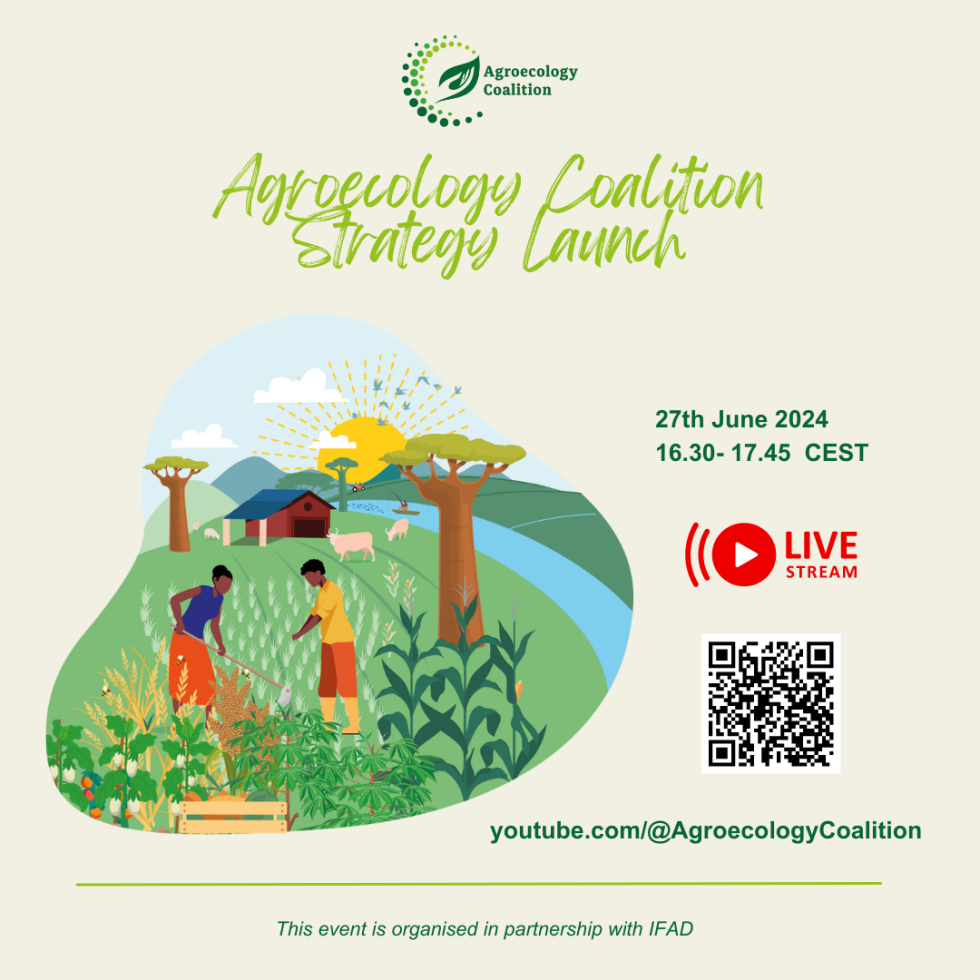27 June 2024 Launch event of Agroecology coalition strategy
The Agroecology Coalition launched its 2024- 2030 strategy during a high-level event in Rome at the IFAD headquarter.

With a wide and diverse base to draw from, the Coalition
has the capacity to harness and amplify the combined experience and expertise of
its members to achieve greater impact in advancing food systems transformation
through agroecology.
- Welcome Remarks – IFAD President Alvaro Lario
- Message from Agroecology Coalition Co-chair
- The Agroecology Coalition and 2024-2030 Strategy Short video Presentation of the Agroecology Coalition Strategy
- Oliver Oliveros, Coordinator, Agroecology Coalition
Roundtable Discussion 1: Agroecology in Rome-based Agencies
- FAO – Corinna Hawkes, Director, Agrifood Systems Division
- IFAD – Jo Puri, Associate Vice-President
- WFP – Carmen Burbano, Director, School Meals Coalition
- CGIAR – Juan-Lucas Restrepo, Director-General, Alliance Bioversity-CIAT
Roundtable Discussion 2: Agroecology in countries
- H.E. Amb. Ngor Ndiaye, Senegal; Chair, Group of Friends of Agroecology
- H. E. Amb. Duong Hai Hung, Vietnam
- Ms. Annette Schneegans, UN Section Head, EU Delegation in Rome
- H. E. Amb. Carla Carneiro, Brazil
Resources:
Agroecology Coalition Strategy for 2024-2030: Accelerating food systems transformation through agroecology. # 19 pp.This ambitious strategy results from a year-long consultation with the Coalition’s 300 members and represents a tool to rapidly accelerate the transition to sustainable agroecological food systems by 2030.
This strategy builds further on the Coalition’s work supporting food systems
transformation through agroecology and the implementation of national pathways,
elaborated by countries in the frame of the UNFSS. It does so by facilitating
co-creation and exchange of knowledge; promoting increased investments in
agroecology; supporting market pathways for agroecology; and seeking political
engagement and increased commitment to agroecological transformation.





No comments:
Post a Comment